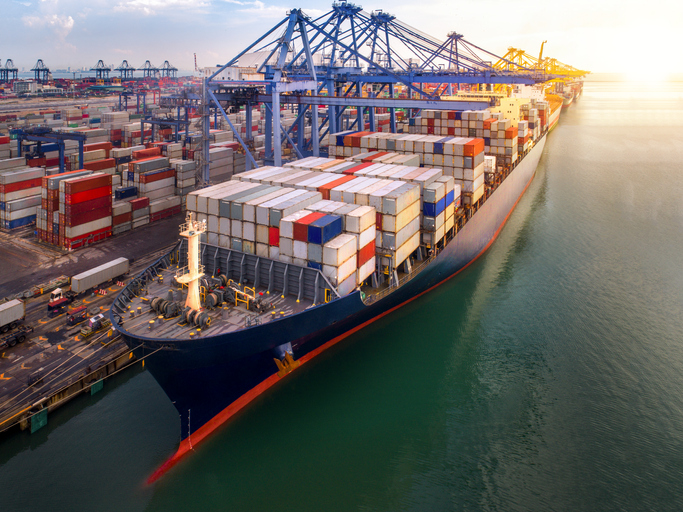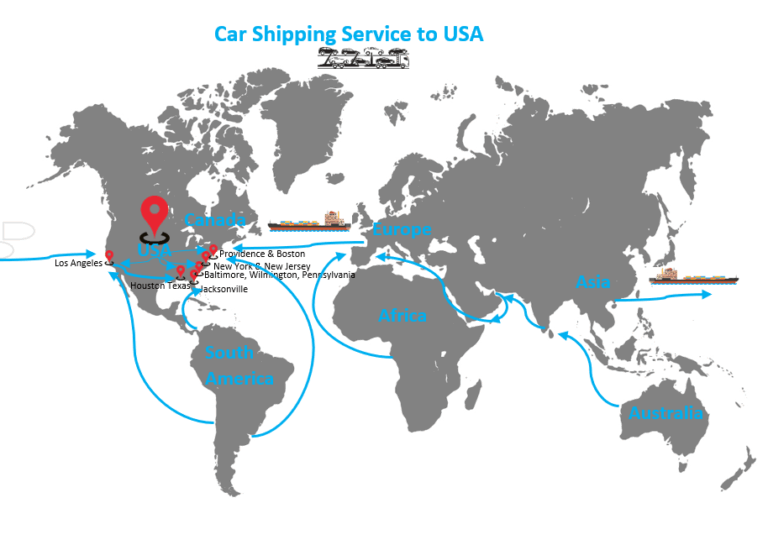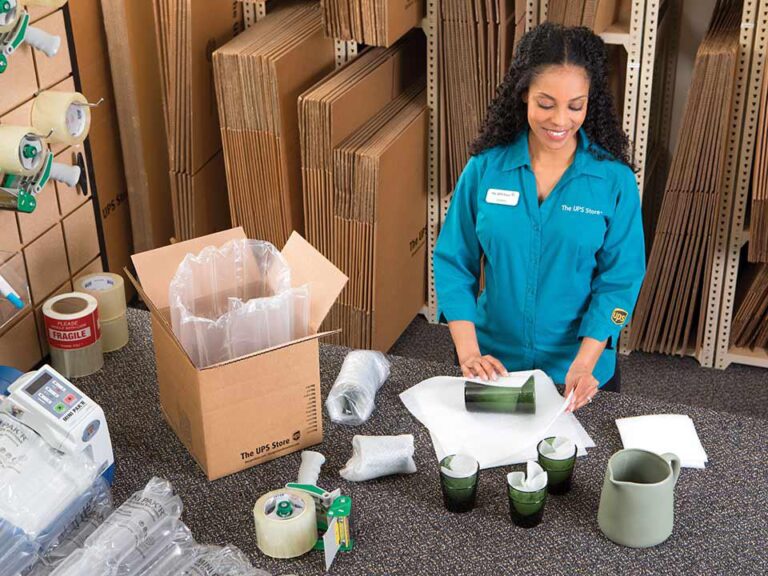Shipping to Nigeria: Costs, Services, and Key Considerations
Nigeria, with a GDP of $477 billion in 2023 and a population of over 230 million, is Africa’s largest economy and a major import market for electronics, vehicles, and consumer goods. Its key ports—Lagos (Apapa, Tin Can Island), Port Harcourt, and Lekki—and air hub Murtala Muhammed International (LOS) handle significant trade, with imports reaching $52 billion in 2022. Users searching for “shipping to Nigeria” seek insights on costs, reliable providers, and navigating complex customs and logistics challenges, including infrastructure deficits and security concerns. This guide explores sea, air, and domestic freight options from key origins (US, China, UK), includes a comparison table, and offers tips for cost-effective shipping, addressing challenges like customs delays, port congestion, and regulatory hurdles. It leverages web sources (e.g., ShipBob, DHL, trade.gov) and X posts (e.g., @GiGLogistics, @ronaldnzimora) for accuracy.
Shipping Options to Nigeria
Shipping to Nigeria involves sea freight, air freight, and domestic freight (for intra-Nigeria shipments). Sea freight includes Full Container Load (FCL), Less than Container Load (LCL), and Roll-On/Roll-Off (RoRo) for vehicles or oversized cargo. Air freight covers bulk air cargo and small parcel express services. Domestic freight includes parcel and freight delivery within Nigeria. Below, we outline these options.
Sea Freight: Cost-Effective for Large International Shipments
Sea freight is ideal for bulk or heavy cargo, with Lagos handling over 2 million TEUs annually, though congestion is common, per @LagosPort.
Full Container Load (FCL)
FCL offers exclusive use of a 20-foot (33.2 cubic meters) or 40-foot (67.7 cubic meters) container, suitable for shipments filling at least 50–60% of a container. From the US (New York) to Lagos, a 40-foot FCL costs $5,000–$7,500 (35–45 days), per DocShipper, reflecting high costs due to port congestion and infrastructure issues. From China (Shenzhen), costs are $4,500–$6,500 (35–40 days), per CFC, with Lekki port easing delays since 2023. From the UK (Southampton), expect $4,000–$6,000 (25–35 days), per DocShipper UK. Additional fees (e.g., drayage, demurrage, port charges) may add $500–$1,500, per Ronish Nigeria.
Less than Container Load (LCL)
LCL consolidates smaller shipments, ideal for volumes under 15 cubic meters. From the US, LCL costs $100–$200 per cubic meter (40–50 days), per DocShipper. From China, expect $80–$150 per cubic meter (45–50 days), per Bowagate Global. From the UK, costs are $90–$170 per cubic meter (30–40 days). LCL faces higher risks of damage and delays due to multiple handling, per DHL Nigeria.
Roll-On/Roll-Off (RoRo)
RoRo is used for vehicles or heavy equipment, critical for Nigeria’s 720,000-vehicle annual demand, per DHL. From the US, a standard vehicle to Lagos costs $2,000–$4,000 (35–45 days), per All Transport Depot. From China, costs are $1,800–$3,500 (35–40 days). From the UK, expect $1,500–$3,000 (25–35 days). Vehicles must comply with a 12-year age limit, per NCS.
Air Freight: Speed for Urgent International Shipments
Air freight is faster but costlier, ideal for high-value or time-sensitive goods. LOS handles over 200,000 tons of air cargo annually, though customs delays are frequent, per trade.gov.
Bulk Air Cargo
Bulk air cargo suits larger shipments, with transit times of 3–7 days from the US, 4–8 days from China, and 2–5 days from the UK. Costs, based on actual or volumetric weight (length x width x height in cm ÷ 6000), average $5.00–$8.00/kg from the US, $4.00–$6.50/kg from China, and $3.50–$6.00/kg from the UK, per Freightos Air Index. A 150 lbs shipment from the US costs $300–$600.
Small Parcel Express Services
Express couriers like NIPOST, FedEx, UPS, DHL, Aramex, and Cainiao Express are ideal for small parcels. From the US, FedEx International Priority costs $40–$80 for 1–5 lbs (3–5 days), per Easyship. From China, Cainiao Express costs $34 USD (245 RMB) for 1 kg (15–30 days), per provided dataset, or $20–$30 for express air (4–6 days), per CFC. From the UK, DHL Express costs $35–$70 for 1–5 kg (2–4 days). NIPOST’s domestic rates (e.g., Lagos–Abuja) are NGN 2,000–5,000 (~$1.20–$3.00 USD) for 2 kg (2–5 days), per nipost.gov.ng.
Domestic Freight: Efficient for Intra-Nigeria Shipments
Domestic freight within Nigeria uses road, sea, or air, leveraging providers like NIPOST, GIG Logistics, and Red Star Express, though poor road networks pose challenges, per trade.gov.
Parcel Delivery
For small packages, NIPOST or GIG Logistics are common. From Lagos to Kano (500 miles), a 2 kg parcel costs **NGN 2,000–5,000 ($1.20–$3.00 USD)** (2–5 days), per GIGL. Express options cost NGN 5,000–10,000 (~$3.00–$6.00 USD) (1–2 days). @ronaldnzimora notes high domestic costs (e.g., NGN 6,000 Lagos–Calabar).
Freight Delivery
For larger shipments, road or sea freight is used. A 1,000 kg pallet from Lagos to Port Harcourt (350 miles) costs **NGN 100,000–250,000 ($60–$150 USD)** (3–7 days), per Ronish Nigeria. Air freight within Nigeria (e.g., Lagos–Abuja) costs $3–$6/kg (1–2 days).
Comparison of Shipping Options
Below is a comparison table of shipping options to Nigeria from US, China, UK, and domestic origins, designed for clarity and visual appeal.
| Mode | Origin | Cost (Example) | Transit Time | Suitability |
|---|---|---|---|---|
| FCL (40-foot) | US | $5,000–$7,500 (NY–Lagos) | 35–45 days | Large shipments (e.g., machinery) |
| China | $4,500–$6,500 (Shenzhen–Lagos) | 35–40 days | Bulk goods, cost-effective | |
| UK | $4,000–$6,000 (Southampton–Lagos) | 25–35 days | Industrial equipment, vehicles | |
| LCL | US | $100–$200 per cbm | 40–50 days | Smaller shipments under 15 cbm |
| China | $80–$150 per cbm | 45–50 days | E-commerce, partial loads | |
| UK | $90–$170 per cbm | 30–40 days | Mixed cargo, smaller volumes | |
| RoRo | US | $2,000–$4,000 (vehicle) | 35–45 days | Vehicles, heavy equipment |
| China | $1,800–$3,500 (vehicle) | 35–40 days | Oversized machinery | |
| UK | $1,500–$3,000 (vehicle) | 25–35 days | Specialty vehicles | |
| Bulk Air Cargo | US | $5.00–$8.00/kg (150 lbs: $300–$600) | 3–7 days | High-value, time-sensitive goods |
| China | $4.00–$6.50/kg | 4–8 days | Electronics, perishables | |
| UK | $3.50–$6.00/kg | 2–5 days | Pharmaceuticals, urgent cargo | |
| Express (FedEx) | US | $40–$80 (1–5 lbs) | 3–5 days | Urgent parcels, documents |
| Express (Cainiao) | China | $34 (1 kg, 245 RMB) | 15–30 days | E-commerce, cost-effective |
| Express (DHL) | UK | $35–$70 (1–5 kg) | 2–4 days | High-priority small shipments |
| Parcel (NIPOST) | Domestic | NGN 2,000–5,000 (~$1.20–$3.00, 2 kg) | 2–5 days | Small domestic packages |
| Freight (Road/Sea) | Domestic | NGN 100,000–250,000 (~$60–$150, 1,000 kg) | 3–7 days | Large domestic shipments |
Notes: Costs are estimates based on web data (e.g., DocShipper, CFC, Easyship) and X posts (e.g., @GiGLogistics). NGN/USD at 1,666 (parallel market rate, June 2025). Cainiao pricing from dataset (245 RMB). Costs reflect port congestion and infrastructure challenges, per trade.gov.
Selecting a Service Provider
Choosing a provider with Nigeria expertise is critical due to customs complexity and infrastructure deficits. Below are key players and their offerings:
- Freightos: Digital platform for FCL ($4,000–$7,500), LCL, and air freight quotes, with tracking and customs support, per freightos.com.
- Easyship: Compares NIPOST, FedEx ($40–$80), DHL, and Aramex rates for parcels, with automated customs forms, per easyship.com.
- NIPOST: Domestic (NGN 2,000–5,000) and international parcel delivery, with extensive network, per nipost.gov.ng.
- GIG Logistics: US–Nigeria parcels ($4.49/lb, min. 11.2 lbs, 7–10 days), with consolidation and GIGGo app tracking, per giglogistics.com. @GiGLogistics offers discounts (e.g., 5% for Father’s Day).
- DHL: Express ($35–$80), freight, and door-to-door services, with customs tools and insurance, per dhl.com.
- SFL Worldwide: Partners with FedEx, DHL, UPS for express (2–5 days) and economy (2–4 weeks), with tracking, per sflworldwide.com.
- Ronish Nigeria: Ocean, air, and customs brokerage, with duty optimization (up to 14% savings), per ronishlogistics.com.
- CFC: China–Nigeria FCL, LCL, and air ($34 for 1 kg, 15–30 days), with customs clearance, per cargofromchina.com.
- DocShipper: Door-to-door from US/UK, with customs and warehousing, per docshipper.us.
Compare quotes via Freightos, Easyship, or GIGL, and prioritize providers with Nigeria expertise, like Ronish or DHL, for compliance and reliability.
Customs and Regulations (International Shipments)
International shipments to Nigeria are managed by the Nigeria Customs Service (NCS), using the CIF method for duties and taxes, per trade.gov. Domestic shipments face no customs requirements.
Documentation
- Required Documents: Commercial Invoice (with HS codes, value), Bill of Lading/Airway Bill, Packing List, Certificate of Origin, Pre-Arrival Assessment Report (PAAR), Form M, and import permits for restricted goods, per CFC. Freight over $1,000 requires a Clean Report of Inspection (CRI), per ShipBob.
- Accuracy: Errors in HS codes or documentation trigger delays (2–7 days), fines (up to NGN 500,000), or demurrage, per Ronish Nigeria. Use brokers like DHL or Bowagate.
- Special Requirements: Hazardous goods (e.g., lithium batteries) need UN3480/81 packaging. Vehicles require 12-year age compliance and NADDC clearance, per DHL.
Taxes and Duties
- Customs Duty: 5–35% (e.g., 5–20% for electronics), based on HS codes and ECOWAS Common External Tariff (CET), per trade.gov. No de minimis threshold; all dutiable shipments require formal clearance.
- VAT: 7.5% (increased from 5% in 2020) on CIF + duty, per ShipBob.
- Other Fees: Port handling (NGN 50,000–200,000), inspection fees, and levies, per NCS. Demurrage starts after 3 days, per Ronish Nigeria.
- Fast Track: Eligible importers (3+ years in business) can clear goods at warehouses, reducing port delays, per trade.gov.
Restricted/Prohibited Items
- Prohibited: Pasta, bottled water, cement, used clothing, firearms, obscene materials, per Parcel Monkey and trade.gov.
- Restricted: Pharmaceuticals, food, vehicles (12-year limit), electronics (anti-dumping scrutiny) require NCS, NAFDAC, or NADDC permits, per Bowagate Global.
- Check Updates: Regulations change frequently; verify via customs.gov.ng or brokers like Ronish.
Clearance Time
Typically 1–7 days for air freight, 7–14 days for sea freight, per Airsupply. Incomplete paperwork or inspections can extend delays, per DHL Nigeria.
Key Considerations and Challenges
Nigeria’s logistics sector ranks 110th in the Logistics Performance Index, with challenges like infrastructure deficits and corruption, per trade.gov.
Logistics Challenges
- Port Congestion: Lagos ports face delays (2–14 days) due to limited berths and poor access roads, per trade.gov. Lekki port (operational since 2023) eases pressure, per CFC.
- Security Risks: Armed robbery and theft threaten road freight, per DHL Nigeria. Use GPS-tracked fleets or insurance, per Ronish Nigeria.
- Infrastructure: Poor roads and unstable electricity delay domestic delivery (3–7 days extra for remote areas), per @ronaldnzimora.
- Customs Delays: Manual inspections and corruption slow clearance, per trade.gov. PAAR and Fast Track 2.0 reduce delays, per NCS.
Seasonal and Economic Factors
- Peak Seasons: Christmas, Ramadan, and Q4 e-commerce surges increase rates and delays. Book 4–6 weeks early, per SFL Worldwide.
- Currency Volatility: Naira fluctuations (NGN 1,666/USD, June 2025) raise costs. Invoice in USD/EUR or use hedging, per DHL Nigeria.
- E-commerce Boom: Online retail grew 30% in 2024, driving parcel demand, per Ronish Nigeria.
Cost-Saving Tips
- Consolidation: Combine shipments via GIGL or LCL to save up to 70%, per Ronish Nigeria.
- Compare Quotes: Use Freightos, Easyship, or SFL Worldwide for competitive rates.
- PAAR Compliance: Secure PAAR pre-arrival to avoid demurrage, per Bowagate Global.
- Customs Brokers: Engage DHL or Ronish to expedite clearance and avoid fines.
Conclusion
Shipping to Nigeria requires navigating complex customs, infrastructure deficits, and security risks. International sea freight (FCL: $4,000–$7,500, LCL: $80–$200/cbm, RoRo: $1,500–$4,000) and air freight (express: $34–$80, bulk: $3.50–$8.00/kg) suit global shipments, while domestic freight (parcels: $1.20–$3.00, freight: $60–$150) is efficient within Nigeria. Providers like Freightos, GIG Logistics, and Cainiao Express ($34, 15–30 days from China) offer tailored solutions. By comparing rates, ensuring compliance, and planning for seasonal peaks, you can achieve efficient, cost-effective shipping to Nigeria.
For quotes, contact Freightos (freightos.com), Easyship (easyship.com), or GIG Logistics (giglogistics.com). Plan today for a seamless shipping experience.



